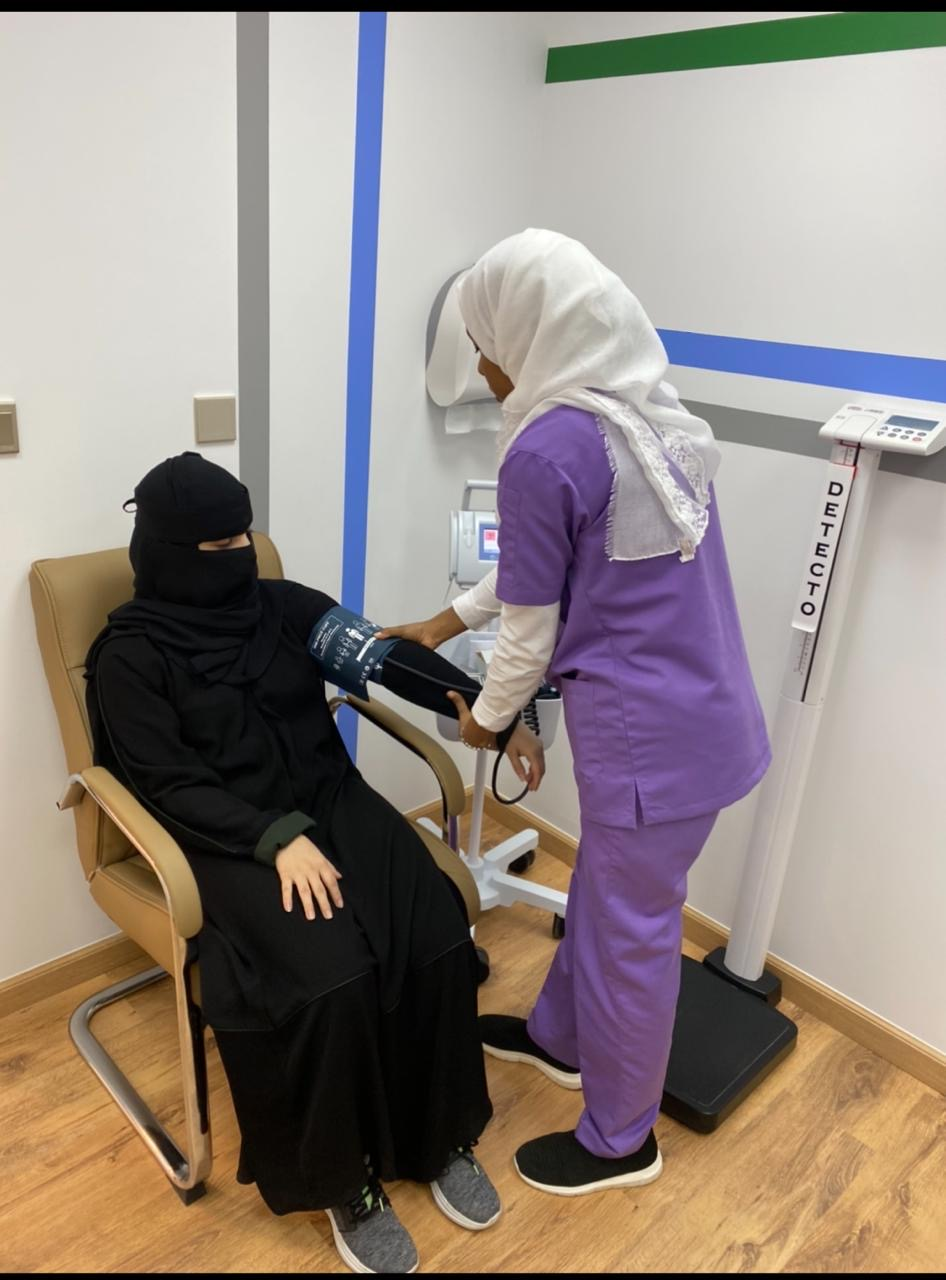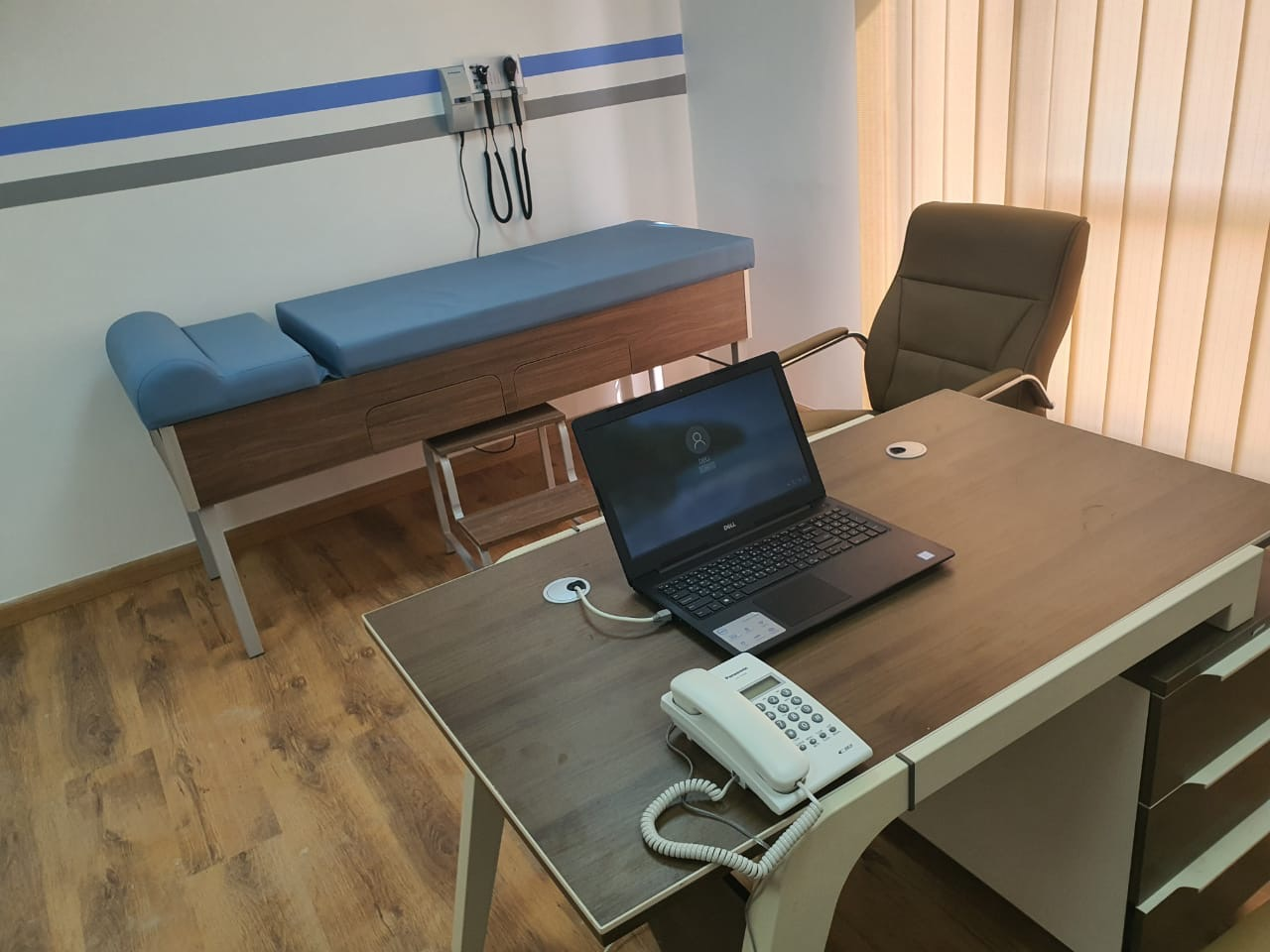The Primary Health Care Team Working within the Care Model
Evidence has demonstrated that primary care being deliver by a team of health care providers can reduce hospitalizations; reduce costs, increase quality and increase patient satisfaction. The Saudi Health Power Family Medicine Center Care Model (FMCCM) requires the utilization of a well-defined and well-funded primary health care team. The FMCCM and the MOH New Model of Care in their complexity require a new approach to staffing. This staffing will be based on the Patient – Centered Medical Home and the team-based care model
Physicians
Why is it important to rethink the role of the Primary Care Physician (PCP)?
Historically, primary care has been based on a model in which PCPs perform most clinical tasks. Today, however, it is increasingly difficult, if not impossible, for PCPs to do everything on their own. To meet the patient care expectations of a modern-PCMH, practices must routinely meet patient needs for evidence-based prevention and illness care, help patients become better managers of their health and illness, and monitor and support patients between clinic visits. PCMHs expand the comprehensiveness of their care to include the management of complex multi-problem patients, chronic pain, hepatitis C and HIV, and individuals with behavioral, mental health, or substance abuse problems. PCPs have also been burdened with increasing demands for documentation and administrative tasks. These increasing demands have understandably contributed to sub-optimal patient care, PCP frustration and professional burnout
A team-based approach to primary care is gaining traction among innovative health care organizations and policymakers to meet these escalating demands. Team-based care is most successful when PCPs learn to trust their staff and can work effectively both as team members and as team leaders.

How should the role of the PCP change?
Team-based care may often require PCPs to re-think their role in relationship to both their patients and other members of the primary care team. To work effectively in teams, PCPs need to:
Ultimately, the goal is to maximize the time PCPs have available for diagnosis, treatment, and building relationships with patients, while at the same time increasing job satisfaction and decreasing stress.
What do we gain by making these changes?
Changing to a team-based approach has many benefits for patients, PCPs, and the overall practice of primary care. The most important benefit is higher quality of care: studies have shown that collaborative and team-based approaches to care result in better patient outcomes. While some PCPs may initially be uncomfortable letting go of certain tasks, growing evidence suggests that more effective teams reduce PCP burn out and improve patient experience. Finally, our health care system as a whole will benefit from a sustainable model of primary care that attracts bright, motivated individuals at all levels of training

Nurse
Why is it important to rethink the role of the Nurse?
The role of nurses in primary care has evolved a great deal. Competition from hospitals for quality nurses and the corresponding rise in nurses’ compensation have caused many primary care practices to reduce nursing staff or find ways to maximize their value and productivity. Nurses provide a unique set of clinical and management skills, that when used to their fullest potential, can enhance the primary care team and improve patient care. This topic focuses on the role of Nurses as core members of a primary care team. Another important role for Nurses is as specialized providers of care management for patients who have complex or chronic health problems
How should the role of the NURSE change?
It is important to ensure that Nurses are doing work that is uniquely suited to their training and expertise. In turn, other staff members need to take on some of the work that Nurses have traditionally done, such as answering phones and phone triage, simple procedures, basic health education and health coaching, and patient outreach for preventive care.
Tasks that maximize the NURSE role include:
Given the many changes that Nurses in primary care have undergone, it is understandable that many may be wary of change. But for their role in primary care to remain viable, Nurses need to adapt and change along with the care team.
What do we gain by making these changes?
Nurses bring a deep set of clinical skills and a desire to participate in direct patient care. It is imperative for both the fiscal health of primary care and NURSE job satisfaction to make the best use of their clinical skills on primary care teams. When providers and Nurses work together, it allows a practice to offer longer, more comprehensive visits for chronically ill patients—while freeing up the provider to do tasks at the top of their license.
Family health coordinator
Why is it important to add this role to the health care team?
The process of health care is changing, it is becoming more complex. Family Doctors can help guide patients through the health care system. The care coordination position is designed to assist patients, parents/family members and caregivers with referrals to specialists and other care providers, communication between the patient and primary care physician, service providers and subspecialty physicians, offer support for concerns and assist with problem solving to promote the patients' well beingIn addition, the Patient Care Coordinators' work will serve to afford physicians more time in direct clinical care and provide to patients a more direct portal of entry to having needs met. In accordance with the principles of the Patient Centered Medical Home, care delivered by the care coordinator(s) should be accessible, family-centered, continuous, comprehensive, coordinated, compassionate, and culturally effective.

The Patient Care Coordinator will:

Disease Management Nurse
Disease Management Nurses, as one of the components of the care team, have demonstrated their value in reducing fragmentation, enhancing care transitions, and coordinating care for the most complex patients. Combining the strengths of a clinical delivery system with the population management expertise of a trained nurse who manages populations, chronic disease and assists patients with navigation within the health care system capitalizes on the strengths of the SHP Network health care system to stratify the population, enhance access, optimize outpatient treatment, provide near real-time reporting, and deploy additional disease/case management resources for those most in need of additional health care services
Receptionist
The role of the receptionist is very important to the Family Medicine Center and the team. The receptionist is the first person the patient hears on the telephone or sees when they arrive in the Family Medicine Center. This role welcomes patients and optimizes patients' satisfaction. This person helps the patient navigate in the FMC by keeping the provider time, and treatment room utilization by scheduling appointments in person or by telephone, keeps patient appointments on schedule by notifying provider of patient's arrival; reviewing service delivery compared to schedule; reminding provider of service delays.

Additional functions of this role include:

Clinical pharmacist
Why is it important to rethink the role of the clinical pharmacist?
Clinical pharmacists have unique expertise in medication dosing, side effects, and efficacy. Conservative estimates of medication errors and adverse drug events in ambulatory care in the US have found an annual rate of more than half a million adverse drug events, with an annual cost of almost $900 million. Team-based care that includes a clinical pharmacist is one way to help prevent some of these adverse drug events. In addition, when clinical pharmacists are active members of the care team, they enhance efficiency by:
How should the role of the clinical pharmacist change?
Many clinical pharmacists are part of a centralized service that clinical staff can access for problematic patients or consult as needed. In contrast, clinical pharmacists at PCMH sites actively work with patients as an integral part of the primary care team, doing tasks such as:
What do we gain by making these changes?
When a clinical pharmacist is an integral member of the primary care team, they can help relieve provider workload, increase efficiency, and help care team members stay updated on best practices. They can also enhance the overall quality of care by working directly with patients to improve:
Behavioral Health Specialist
Why should practices rethink the role of the behavioral health specialist in primary care?
There is increased recognition of the need to integrate care for mental, behavioral and psychosocial issues into primary care. The relationship between mental/psychosocial/behavioral health and physical health is strong, and it is often difficult to address physical issues without first addressing psychological issues and vice versa. To provide patients with holistic and effective care, it is essential that practices integrate behavioral health services into primary care teams. Integrating behavioral health into primary care is a complex and challenging innovation area.
How should the role of the behavioral health specialist change?
Behavioral health integration is a key component of many patient-centered medical home initiatives. But many primary care clinics do not have a behavioral health specialist as a member of their primary care team. In those cases, the question isn’t “how should the role change,” but “what behavioral health expertise and services do we need, and how do we best integrate them into our team and our care?” Other clinics might have a behavioral health specialist on-site but the services they provide may not be fully integrated into the primary care team.

For practices to have comprehensive behavioral health integration, they need access to three types of specialists: 1) a behavioral health specialist able to assess patient behavioral health needs, provide non-pharmacologic interventions for episodic and/or acute behavioral health needs, and collaborate with team around patients with complex chronic care needs, 2) a psychiatric specialist able to consult with primary care providers on the management, especially medication management, of severe/chronic mental illness and/or actively manage these patients in collaboration with the primary care team; and 3) an addictions specialist. PCMC practices generally see co-location as critical for a number of reasons, including availability for warm hand-offs, reduced patient stigma associated with mental health referral, and ability to provide whole-person care through regular communication with primary care providers and staff.
Integrating a behavioral health specialist into primary care teams can improve health outcomes and address many barriers patients face accessing this type of care. Patients are often reluctant to seek help for behavioral health issues for a number of reasons, including:
Integrating behavioral health specialists into primary care allows patients to be seen at their primary care clinic. Because primary care clinics do not specialize in mental health treatment, patients often find it less stigmatizing and easier access to services. Integrated behavioral health services also benefit the provider and team by providing: 1) additional support for complex patients, 2) education and consultation on behavioral and psychiatric issues, and 3) behavioral health support for team members. The last of these benefits in PCMH sites, is demonstrated where behavioral health specialists actively use their professional skills to improve team dynamics and communication.

Nutritionist
Why should practices rethink the role of the nutritional health specialist in primary care?
There is increased recognition of the need to integrate care for nutritional issues into primary care. The relationship between mental/psychosocial/nutritional health and physical health is strong, and it is often difficult to address physical issues without also addressing nutritional issues and vice versa. To provide patients with holistic and effective care, it is essential that practices integrate nutritional health services into primary care teams. Integrating nutritional health into primary care is a complex and challenging innovation area.
How should the role of the nutritional health specialist change?
Nutritional health integration is a key component of many patient-centered medical home initiatives. But many primary care clinics do not have a nutritional health specialist as a member of their primary care team. In those cases, the question isn’t “how should the role change,” but “what nutritional health expertise and services do we need, and how do we best integrate them into our team and our care?” Other clinics might have a nutritional health specialist on-site but the services they provide may not be fully integrated into the primary care team.
For practices to have comprehensive behavioral health integration, they need access to three types of specialists: 1) a behavioral health specialist able to assess patient behavioral health needs, provide non-pharmacologic interventions for episodic and/or acute behavioral health needs, and collaborate with team around patients with complex chronic care needs, 2) a psychiatric specialist able to consult with primary care providers on the management, especially medication management, of severe/chronic mental illness and/or actively manage these patients in collaboration with the primary care team; and 3) an addictions specialist. PCMC practices generally see co-location as critical for a number of reasons, including availability for warm hand-offs, reduced patient stigma associated with mental health referral, and ability to provide whole-person care through regular communication with primary care providers and staff.
What do we gain by making these changes?
Integrating a nutritional health specialist into primary care teams can improve health outcomes and address many barriers patients face accessing this type of care. Patients are often reluctant to seek help for nutritional health issues for a number of reasons, including:
Integrating nutritional health specialists into primary care allows patients to be seen at their primary care clinic

